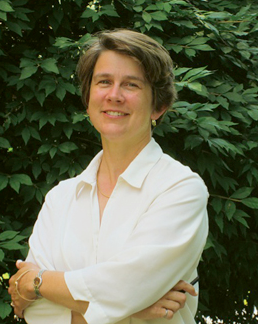Transportation and Livability: What's That Really Mean for Rural Transportation Systems?
 Lisa Aultman-Hall, PhD, director of the University Transportation Center at the University of Vermont, recently delivered a talk at Volpe.
Lisa Aultman-Hall, PhD, director of the University Transportation Center at the University of Vermont, recently delivered a talk at Volpe.
This seminar was designed to challenge transportation researchers and policy makers, many of whom focus on metropolitan systems, to consider the nature and severity of problems in the rural transportation system where livability means something quite different than simply travel choices and “destinations close to home.”
Dr. Aultman-Hall reviewed the rise of livability as a concept in federal transportation policy between 2009 and 2012 and discussed lessons learned, specifically barriers that must be overcome, for non-metropolitan and rural areas.
About the Speaker
Dr. Aultman-Hall is a professor in the School of Engineering at the University of Vermont and also serves as the director of the University Transportation Center. Her research group studies travel behavior with real-world data, including accessibility, bicycle travel, tailpipe emissions, EV adoption, roundabouts, and long-distance travel. She focuses on innovative travel data collection with on-board GPS, unconventional video applications, and recently web-based surveys.
In October 2010, Dr. Aultman-Hall chaired the Transportation Research Board – U.S. DOT UTC Spotlight Conference on Transportation Systems for Livable Communities. She is currently serving on the TRB Task Force for New Directions for the National Household Travel Survey (NHTS). She was previously an associate professor at the University of Connecticut and director of the Connecticut Transportation Institute.
News and Video
Read the news story and view the video from this event.
The views of the presenter do not necessarily represent the views of U.S. DOT.

